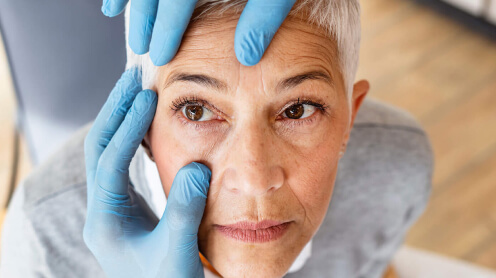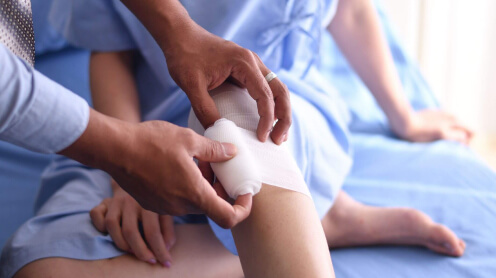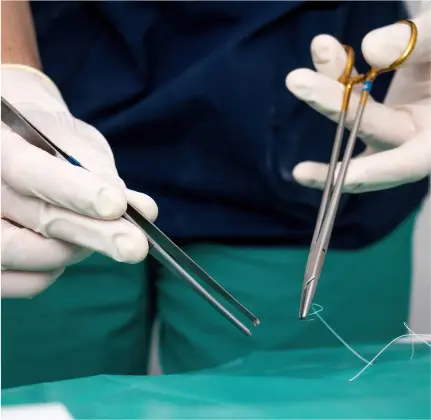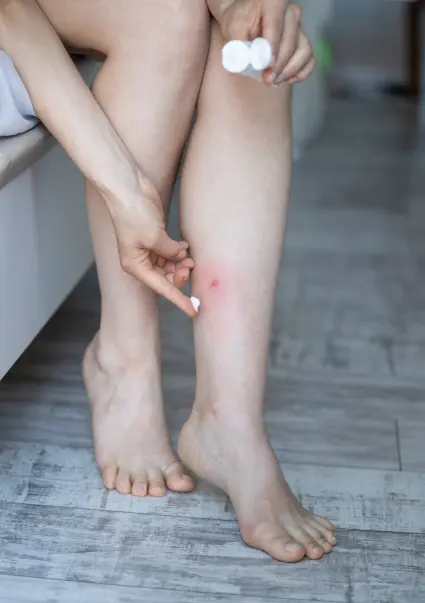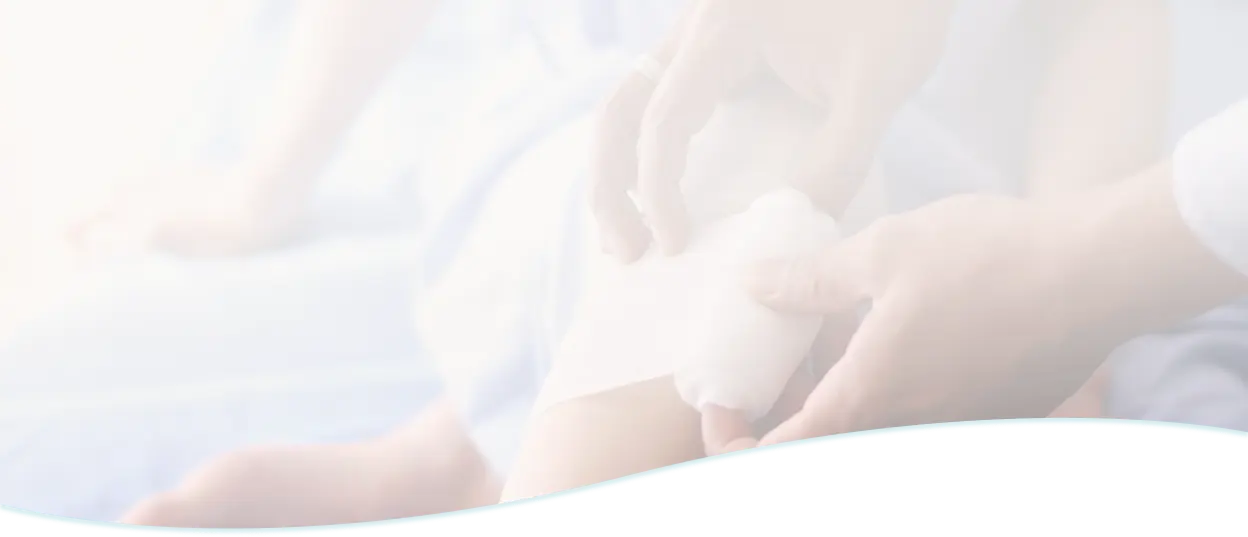
Stitches & Wound Care
At Newport Center Urgent Care, we provide complete wound care services. Our medical professionals are knowledgeable in various types of wounds and offer the appropriate treatment, including wound cleaning, dressing, and management. We also provide personalized wound care plans and follow-up care to monitor healing progress.
Whether it's a minor cut or a severe wound, our team is equipped to provide comprehensive care to promote proper healing and prevent complications. If you need wound care services, visit Newport Center Urgent Care for reliable and prompt medical attention.
Stitches & Sutures: Do I Need Them?
Determining whether you need stitches depends on several factors related to the wound. While minor cuts and abrasions can usually be treated at home with proper cleaning and bandaging, more severe wounds may require stitches to ensure proper healing.
Newport Center Urgent Care's medical professionals are skilled and equipped to treat wounds, including proper cleaning and stitching to reduce bleeding and infection risk. We also offer follow-up care to monitor healing. Seeking medical attention for a severe cut or wound promptly is crucial, and Newport Center Urgent Care is a reliable option for immediate care.
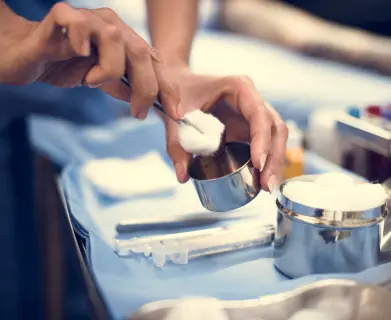
What Are Stitches/Sutures?
When Are Stitches Necessary?
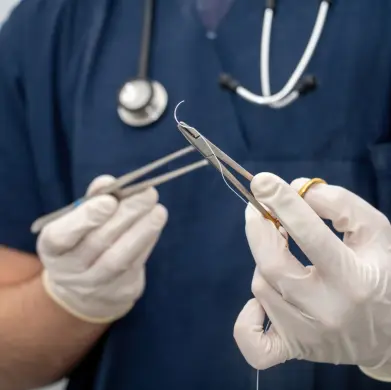
Different Types of Sutures
There are various types of sutures, each designed for specific purposes and situations. Some common types include:
Absorbable Sutures
Non-Absorbable Sutures
Monofilament Sutures
Braided Sutures
Types of Wounds Treated at Newport Center Urgent Care
Cuts
Lacerations
Punctures

Our Approach to Aftercare and Recovery
Stitches & Wound Care at Newport Center Urgent Care
Get To Know US
FREQUENTLY ASKED QUESTIONS
2) wash the wound
3) apply antibiotics
4) cover the wound
